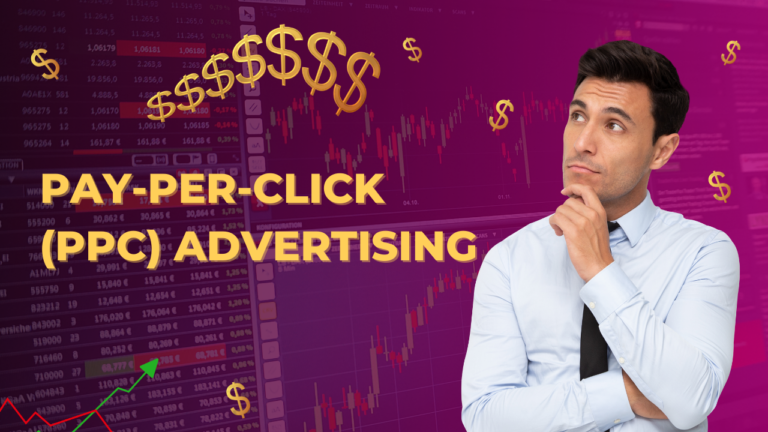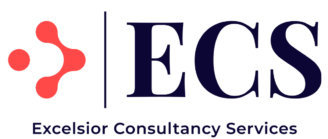Pay-Per-Click (PPC) Advertising: A Complete Beginner's Guide

Pay-Per-Click (PPC), is a digital advertising method in which advertisers pay a fee for every click on their ad. When people search for specific words, the ads with the same or similar words show up, and advertisers are charged only when someone clicks on the ad. It’s a definite way to showcase your website or product to people actively looking for similar things by searching online.
What is PPC?
Pay-Per-Click (PPC) as the name suggests it is about payment for every click on the online advertisement. In other words, PPC is a tool used in online advertising to generate income. When advertisers use PPC, they have to pay money every time someone clicks on their ads. This is generally used on search engines like Google and Bing.
Unique features of PPC:
As we discussed, PPC is an online marketing tool used to advertise your product. PPC advertising primarily focuses on increasing the number of visitors to your website through online advertising. The space for advertising is won by an bidding system.There are two unique features of PPC that have made so popular:
No minimum Bidding:
There is no minimum bid amount set by search engines for advertisers for placing their ad. As an advertiser you need to participate in the auction.
Keywords:
You can use specific words or terms that you think the users will use when searching information related to your website. These are also known as adwords.
Important PPC Campaign Elements:
The success of Pay-per-click (PPC) campaigns depend on several essential components that operate collectively to produce the best possible results. Industry expert have emphasized these components, which include:
1. Keywords:
Marketers choose terms or words that are associated with their goods or services and are likely to be used by people while searching. Depending on bidding techniques, advertisements may show up when people search for these keywords.
2. Effective Ad Copy:
Writing effective ad copy is essential. An ad copy is the content of that ad you want to display using PPC. To get visitors to click, advertisements need to be brief, compelling, and it should be easily understandable.
3. Landing Pages:
Landing pages is where the user will reach after clicking on your ad. It’s important to decide which page people will see after clicking an advertisement. Positive user experience and higher conversion rates are made possible by a landing page that is both well-designed and pertinent.
4. Budget and Bidding:
It is critical to decide on the budget that you want to spend on PPC advertising. Once your budget is finalised, you can decide on bidding strategy to win the ad spaces.
5. Ad Format:
Advertisements can be in the form of posts, images or videos. You need to choose the appropriate format as per the bid, ad position and quality score.
6. Quality Score:
A diagnostic tool helps you see how good your ad is compared to others. The tool gives your ad a score from 1 to 10. You can check this score for each keyword to know how well your ad is doing.
Pay-Per-Click Tips:
Digital advertisers that use the pay-per-click (PPC) model must pay out money each time a user clicks on one of their ads. Here are six tips to help you comprehend the fundamentals of PPC:
- Study your competitors
- Decide on your bidding strategy
- Use of effective keywords (adwords)
- Decide your target audience
- Analyse Quality Scores
- Keep up-to-date with PPC trends.
Benefits of PPC:
Using PPC advertising can make more people notice you online, bring new visitors to your website, and increase the chances of people taking actions, all without spending too much money. Discover more about the advantages of PPC advertising below.
- You can reach targeted audience easily.
- Better better awareness.
- You can test multiple ad formats.
- Launching PPC campaign takes a little time.
- Need to pay only link is clicked on.
- You can budgets for bidding and ads.
Sample Call to Action Heading
Add a strong one liner supporting the heading above and giving users a reason to click on the button below.
Know MoreFAQs
What do you mean by (PPC) "Pay-Per-Click"?
Advertisers that use pay-per-click (PPC) models pay a fee for each click on their ads.
What is PPC advertising?
In the Pay-Per-Click (PPC) model of online marketing, advertisers are charged a fee each time their ad is clicked.
How are PPC campaigns run?
Advertisers place bids on particular keywords or phrases they desire their ads to show up for in search engine results. When a user searches for any of those keywords the advertiser’s ad will be displayed among the top results.
Digital advertising: what is it?
Digital advertising is making use of internet platforms like search engines to advertise their products.
Are PPC ads beneficial to small businesses?
Indeed, PPC advertising may be very successful for small companies. It permits immediate visibility, budget control, and exact targeting in the same way it does for large business houses.
